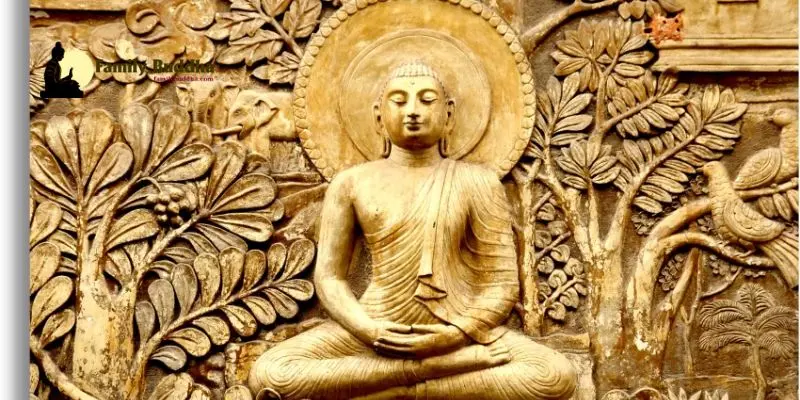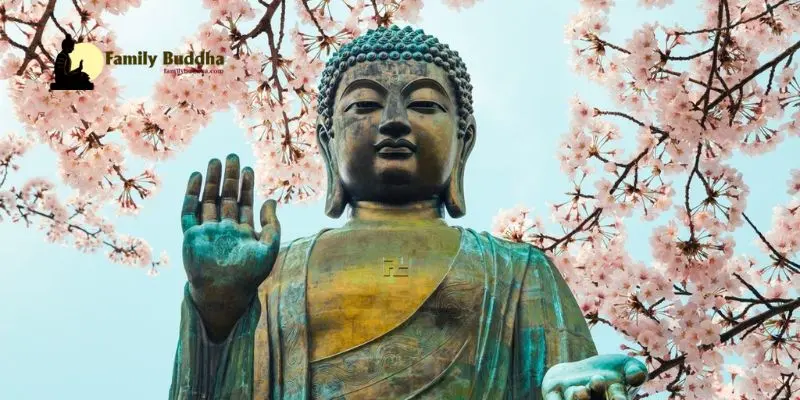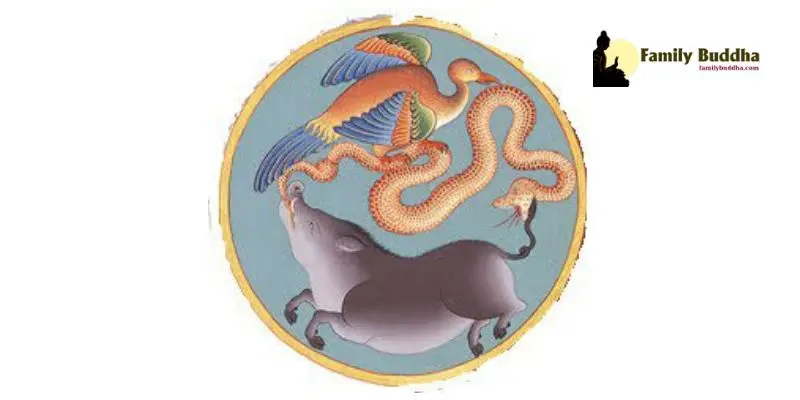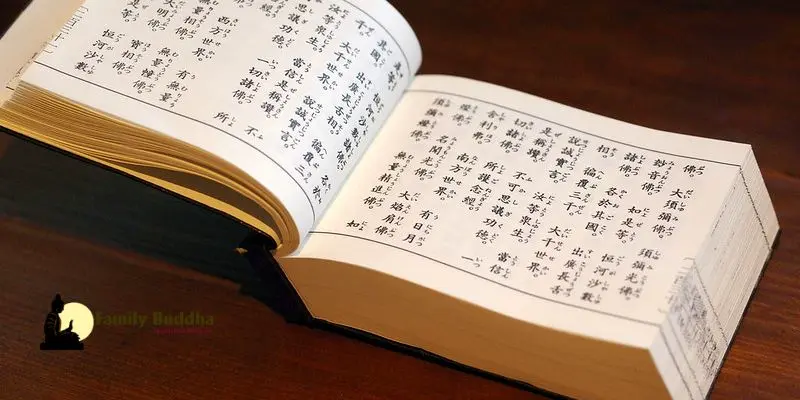” Gieo gió gặt bão” – As the Vietnamese proverb reminds us, we reap what we sow. This concept of karma, of actions having consequences, is deeply intertwined with Buddhist teachings, offering a perspective on luck and fortune that diverges from the idea of patron saints prevalent in some other belief systems. While many cultures might look to specific figures for blessings of good fortune, Buddhism encourages a different approach: cultivating inner qualities and actions that naturally lead to a more fulfilling and, yes, even “lucky” life.
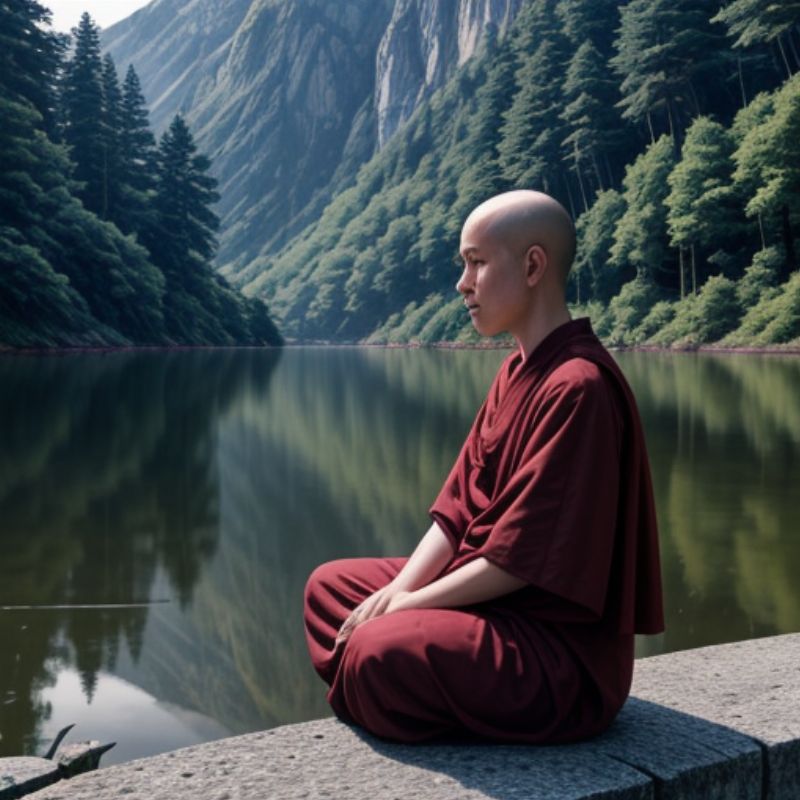 A Buddhist monk finds peace during meditation
A Buddhist monk finds peace during meditation
The Illusion of Luck: A Buddhist Perspective
The concept of a “Patron Saint Of Good Luck” might seem appealing – a benevolent figure ensuring fortune smiles upon us. However, Buddhism encourages us to look deeper. It teaches that clinging to external sources of luck can be a form of attachment, ultimately leading to suffering when those sources prove unreliable, as external forces often do.
Instead of seeking a patron saint to grant good luck, Buddhism invites us to consider:
Karma: The Architect of Our Reality:
Every action, thought, and word we create generates karma. Positive actions tend to ripen into positive experiences, often perceived as “good luck,” while negative actions can lead to difficulties, sometimes mistaken for “bad luck.” Understanding karma empowers us to take responsibility for our lives and create the causes for happiness and fulfillment.
Mindfulness: Recognizing Opportunity:
Have you ever noticed how some people seem to effortlessly attract opportunities? Buddhism would suggest this isn’t mere chance. A calm, clear, and present mind – cultivated through mindfulness practices – is more receptive to recognizing and seizing opportunities that a scattered or preoccupied mind might miss. In this way, mindfulness itself becomes a powerful tool for creating what looks like “luck” to others.
Compassion: The Wellspring of Good Fortune:
Buddhist teachings emphasize compassion as a central virtue. Engaging in acts of kindness and generosity not only benefits others but also creates positive karma, fostering a sense of interconnectedness and well-being within ourselves. This cultivation of positive energy can often manifest as fortunate circumstances in our own lives.
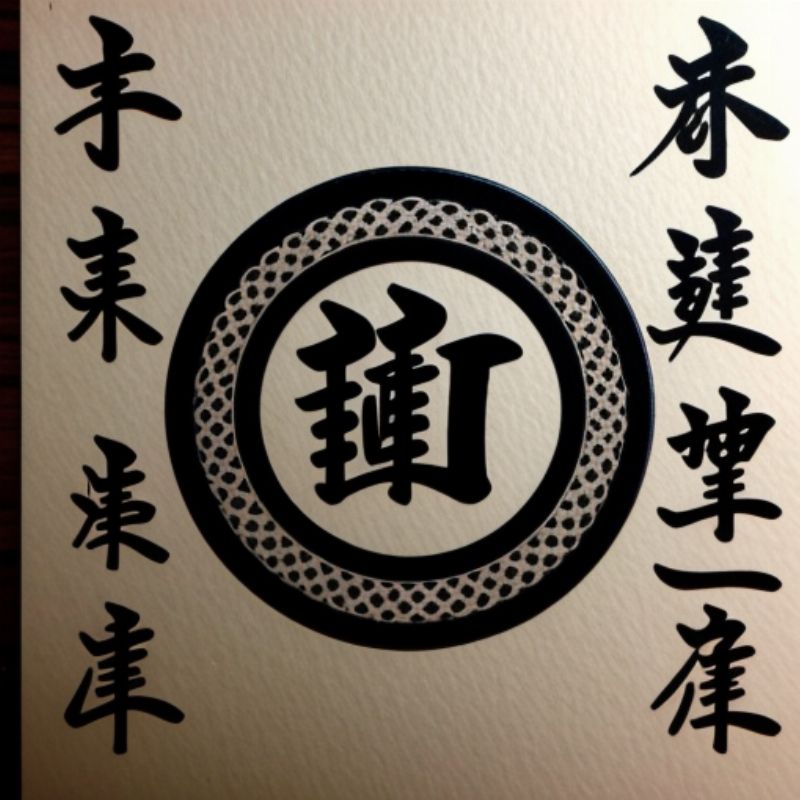 Ancient Buddhist teachings written on a scroll
Ancient Buddhist teachings written on a scroll
Cultivating Our Own Good Fortune: Buddhist Practices
While Buddhism doesn’t offer a “patron saint of good luck,” it provides a wealth of practices designed to cultivate the inner causes of a fortunate and meaningful life:
Meditation: Calming the Mind, Sharpening Awareness:
Through consistent meditation, we train our minds to become less reactive and more focused. This clarity allows us to make wiser choices, navigate challenges with greater ease, and perceive opportunities we might otherwise overlook.
Mindful Living: Transforming Daily Actions into Opportunities for Growth:
Bringing awareness to everyday activities – eating, walking, working – can be transformative. By approaching each moment with intention and presence, we can find joy in the ordinary and respond to situations with greater skillfulness.
Loving-Kindness Meditation (Metta): Cultivating a Compassionate Heart:
This beautiful practice involves directing feelings of loving-kindness and compassion towards ourselves and others. Regular practice helps to dissolve negative emotions, fostering a sense of peace and connection, and opening our hearts to experience greater joy and gratitude.
Dana (Generosity): The Joy of Giving:
Practicing generosity, whether through offering material goods, time, or simply a kind word, is a powerful way to cultivate positive karma. The act of giving without expectation of anything in return can be deeply fulfilling, creating a sense of abundance and interconnectedness.
Finding True Fortune: Wisdom, Compassion, and Peace of Mind
Ultimately, Buddhism teaches us that true good fortune isn’t about amassing wealth or external validation. It’s about cultivating inner qualities that lead to lasting happiness and liberation from suffering. While a “patron saint of good luck” might seem like a comforting idea, the path Buddhism illuminates is one of self-reliance, wisdom, and compassion.
Instead of seeking external favors, we are empowered to become architects of our own lives, creating the causes for true happiness and fulfillment – a kind of fortune that no external force can grant or take away.
 Worshippers offer incense at a serene Buddhist temple
Worshippers offer incense at a serene Buddhist temple
What are your thoughts on the Buddhist approach to luck and fortune? Have you experienced a shift in perspective when it comes to seeking “good luck” in your own life?




